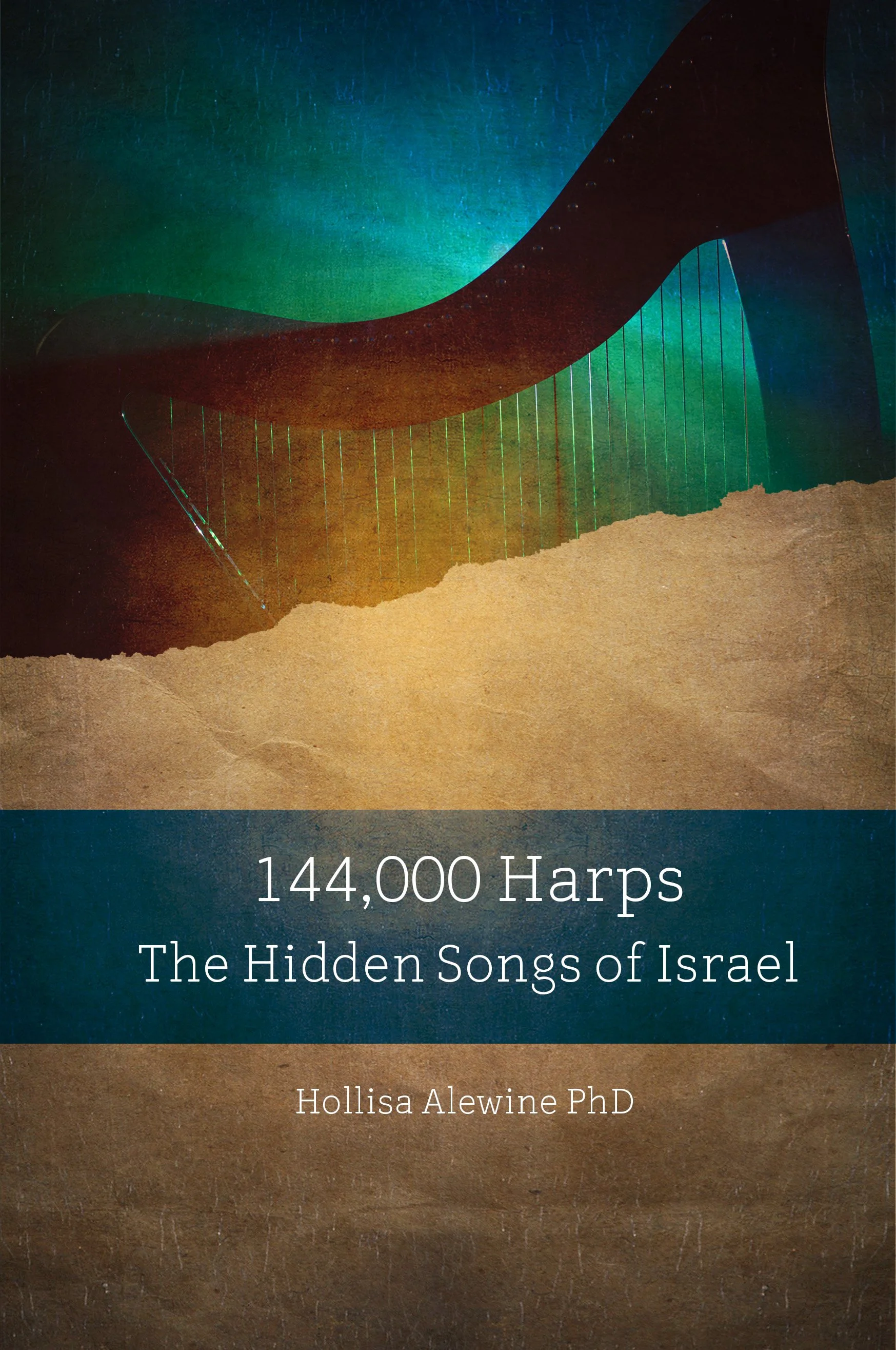144,000 Harps: The Hidden Songs of Israel
CLICK HERE TO PURCHASE FOR KINDLE
Much of the apostolic Scriptures and prophecies are founded upon the Torah. These books of “Moses” are different from the rest of the Bible. While the prophets received their messages in visions, dreams, and dark sayings, Moses received the Torah face to face.
Torah is the most direct of prophecies, yet it is often dismissed as Bible stories. Indeed, the narratives are splendid stories. Human beings do learn first life lessons through story tales, poems, songs, myths, and storybooks. Likewise, the Torah is a believer’s first life lessons in faith. That’s the beauty of the Word. What appears to be stories holds the most powerful of prophecies. It’s not that the prophecies are disguised, but when the reader is conditioned to see only Noah and Abraham stories, then only stories will she see!
For this reason, reading the weekly Torah portion, called the parasha, is beneficial to the whole family. For children, it is the essential history of faith through stories. For young people, it is inspiration and modeling of faith. For adults, it decodes the apocalyptic prophecies of the rest of the Bible. Every song prophesies of Messiah, and Jesus' (Yeshua's) words in the Gospels reflect these songs, even the Song of Creation.
There are songs embedded in the Torah, not just the Song of Moses or the Song of the Sea, but prophetic songs that most readers are not trained to see. 144,000 Harps brings focus to John's Revelation using the lens of those songs in the weekly Torah portions, such as the "Songs in the Night," "The Song of the Frogs in the Oven," and the "New Song." For the student of the Word who wants to study these Torah songs, 144,000 Harps give a simple overview. For the musician who wants to explore the ancient Words and even the definition of song, 144,000 Harps reveals the mysteries and models.
CLICK HERE TO PURCHASE FOR KINDLE
Much of the apostolic Scriptures and prophecies are founded upon the Torah. These books of “Moses” are different from the rest of the Bible. While the prophets received their messages in visions, dreams, and dark sayings, Moses received the Torah face to face.
Torah is the most direct of prophecies, yet it is often dismissed as Bible stories. Indeed, the narratives are splendid stories. Human beings do learn first life lessons through story tales, poems, songs, myths, and storybooks. Likewise, the Torah is a believer’s first life lessons in faith. That’s the beauty of the Word. What appears to be stories holds the most powerful of prophecies. It’s not that the prophecies are disguised, but when the reader is conditioned to see only Noah and Abraham stories, then only stories will she see!
For this reason, reading the weekly Torah portion, called the parasha, is beneficial to the whole family. For children, it is the essential history of faith through stories. For young people, it is inspiration and modeling of faith. For adults, it decodes the apocalyptic prophecies of the rest of the Bible. Every song prophesies of Messiah, and Jesus' (Yeshua's) words in the Gospels reflect these songs, even the Song of Creation.
There are songs embedded in the Torah, not just the Song of Moses or the Song of the Sea, but prophetic songs that most readers are not trained to see. 144,000 Harps brings focus to John's Revelation using the lens of those songs in the weekly Torah portions, such as the "Songs in the Night," "The Song of the Frogs in the Oven," and the "New Song." For the student of the Word who wants to study these Torah songs, 144,000 Harps give a simple overview. For the musician who wants to explore the ancient Words and even the definition of song, 144,000 Harps reveals the mysteries and models.
CLICK HERE TO PURCHASE FOR KINDLE
Much of the apostolic Scriptures and prophecies are founded upon the Torah. These books of “Moses” are different from the rest of the Bible. While the prophets received their messages in visions, dreams, and dark sayings, Moses received the Torah face to face.
Torah is the most direct of prophecies, yet it is often dismissed as Bible stories. Indeed, the narratives are splendid stories. Human beings do learn first life lessons through story tales, poems, songs, myths, and storybooks. Likewise, the Torah is a believer’s first life lessons in faith. That’s the beauty of the Word. What appears to be stories holds the most powerful of prophecies. It’s not that the prophecies are disguised, but when the reader is conditioned to see only Noah and Abraham stories, then only stories will she see!
For this reason, reading the weekly Torah portion, called the parasha, is beneficial to the whole family. For children, it is the essential history of faith through stories. For young people, it is inspiration and modeling of faith. For adults, it decodes the apocalyptic prophecies of the rest of the Bible. Every song prophesies of Messiah, and Jesus' (Yeshua's) words in the Gospels reflect these songs, even the Song of Creation.
There are songs embedded in the Torah, not just the Song of Moses or the Song of the Sea, but prophetic songs that most readers are not trained to see. 144,000 Harps brings focus to John's Revelation using the lens of those songs in the weekly Torah portions, such as the "Songs in the Night," "The Song of the Frogs in the Oven," and the "New Song." For the student of the Word who wants to study these Torah songs, 144,000 Harps give a simple overview. For the musician who wants to explore the ancient Words and even the definition of song, 144,000 Harps reveals the mysteries and models.

